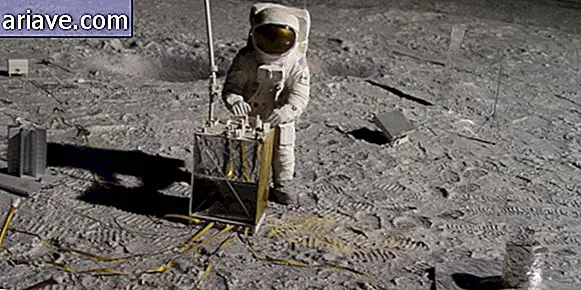Neurogenesis: Can we force the brain to regenerate?

Until the last century, we were convinced that neurogenesis - that is, the process of generating neurons - was restricted to the time animals remained in their progenitor's womb. A good evidence for this theory is the limited ability of humans to recover from stroke or neurological damage caused by accidents.
But as time went on, new research found evidence that the brains of other adult animals could regenerate. This is the case, for example, with the canaries. A study published in 1980 by Fernando Nottebohm of Rockefeller University in New York shows that during the fall these birds regenerate the brain cells they lose during the winter.
At the time, the discovery caused some fury in the scientific community, as according to the article “Fantasy Fix” published in the New Scientist magazine of February 18, 2012, this may renew the hopes of those who need more effective treatment. for diseases like Parkinson's disease. Although some neuroscientists say this is not the case with adult humans, others felt inspired enough to pursue a similar process in our species.
Brain regeneration in mammals

In 1992, researchers Samuel Weiss and Brent Reynolds of the University of Calgary, Alberta, Canada, isolated brain cells from mice that had stem cell-like characteristics. Manipulated in laboratories, these cells gave rise to new neurons as well as other types of brain cells.
In nature, these "mother cells" function similarly. Fred Gage of the Salk Institute in California found that the same substance added to them in the laboratory is also present in the DNA of these mammals. In addition, Gage's team detected the presence of proteins produced only by "newborn" neurons.
Thanks to this type of research, it has been found that in adult rats, neurogenesis occurs in brain cavities filled with cerebrospinal fluid. Interestingly, the nervous system begins to develop similarly in the form of an empty tube that extends through the "back" of the embryo. It is from this that newly formed neurons later create the brain and spinal cord.
And it's not just mice that have neurogenic evidence. In the late 1990s, it was discovered that adult monkeys also generate new cells in the hippocampus, a region of the brain considered to be the "seat of memory." Obviously, monkeys are much more human-like than rats, so at the time this news was very optimistically found.
What about humans?

The big news came when Gage's team was able to analyze the brains of five people who had cancer. While these patients were alive, the researchers had to inject bromodeoxyuridine (BrdU), a substance used to detect cell proliferation in living tissues, which is very useful for enhancing tumors and allowing doctors to better visualize the stage of the disease. Interestingly, after the death of these patients, BrdU was detected in the hippocampus of all patients, thus suggesting that new cells were generated in that region.
The discovery has spread around the world with much optimism, since at first it appears that the brain is far more adaptable to adverse situations than the scientific community believed. Unfortunately, such an experience has not yet been repeated. However, others attest to the same result.
Gerd Kempermann of the Center for Regenerative Therapies in Dresden, Germany, conducted a screening of 15 different antibodies used to detect certain proteins produced by newly created neurons. The brains of 54 people who died when they were close to 100 years old were analyzed.

Surprisingly, the result was similar to that previously obtained with laboratory guinea pigs: the presence of indicatives showing that new cells were being generated in the hippocampus. In an interview with New Scientist magazine February 18, 2012, Dr. Kempermann stated that although cell generation decreases as one ages, one can perceive this activity even in older humans.
In addition, it was also possible to detect the presence of stem cells in the brain of Homo sapiens. This finding was made possible only by patients who underwent surgery to treat epileptic seizures. The treatment basically consists of removing parts of the brain where these convulsions originate around the hippocampus.
Thus, it was possible to isolate what appeared to be stem cells located in these removed samples. Although these cells have limited laboratory growth capacity, they have the ability to generate new neurons. For neuroscientists, this is great news, as this "reservoir" of cells could be exploited to treat strokes and diseases like Parkinson's and Alzheimer's.
Neurogenesis and scientific skepticism

As might be expected, some scientists oppose the idea that neurogenesis is possible in adult humans. In an article published in the journal Nature (vol. 478; p. 333), the famous neuroscientist Pasko Rakic states that the data found in mouse experiments cannot be applied to humans.
As if that were not enough, Rakic claims that the use of BrdU in such experiments is unreliable, as the substance can induce cell division. Therefore, many tests are now done with antibodies that identify proteins generated by new neurons, but there is still no consensus as to which proteins can reliably identify the presence of newly created neurons. In addition, experiments that found the presence of neurogenesis in monkeys were performed with BrdU only.
Roughly speaking, scientists who still see neurogenesis doubtfully sum up the situation by saying that there is no evidence that such a phenomenon happens in the cerebral cortex, that there is contradictory evidence for the birth of new neurons in the olfactory bulb - the brain region responsible for the neurons. smells we feel - and that evidence is limited in the case of the hippocampus, whose neurogenesis seems to diminish as we get older and it is not known for sure if the amount available could be helpful in any way.
The old idea that the adult human brain cannot regenerate may be true. According to Rakic and other scientists, it is very likely that with an advanced age our brain is more stable than adaptable. However, there would still be hope for patients with neural disease or injury: to transplant laboratory-generated neurons to the patient's brain.
Unfortunately, humanity still has a long way to go before these techniques reach hospitals and clinics around the world. But it is important to know that we are already taking the first steps to make this a reality.











